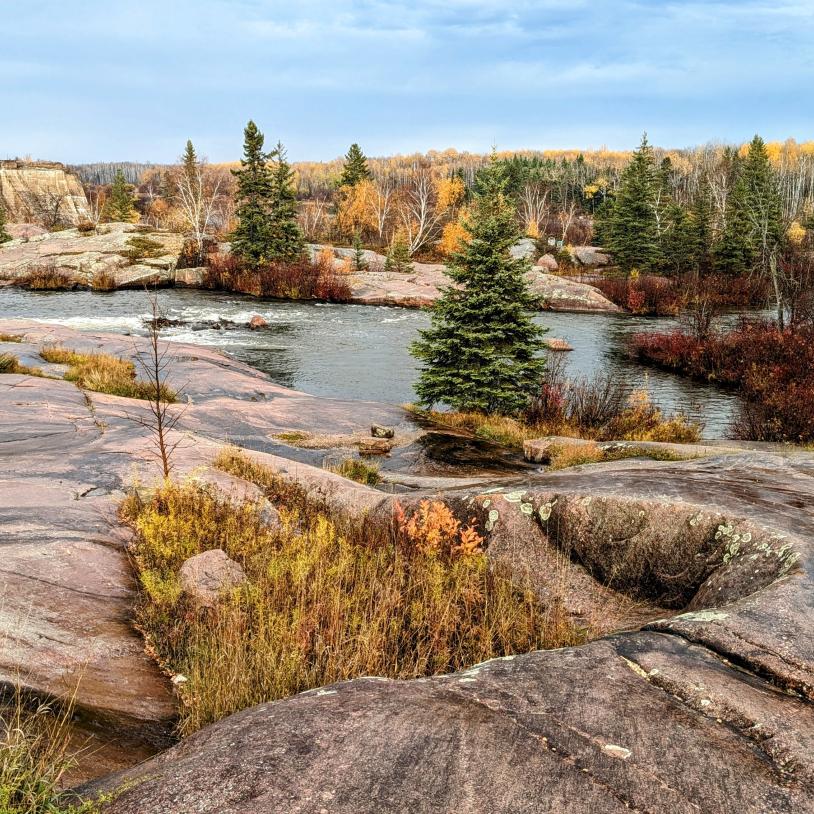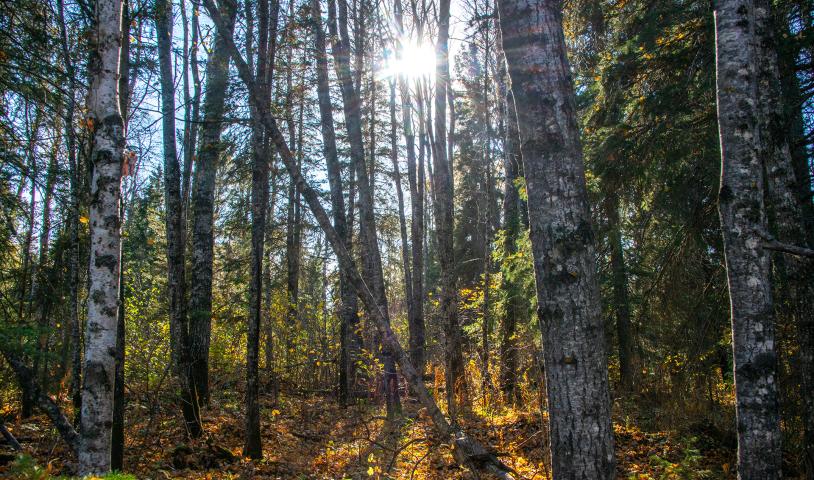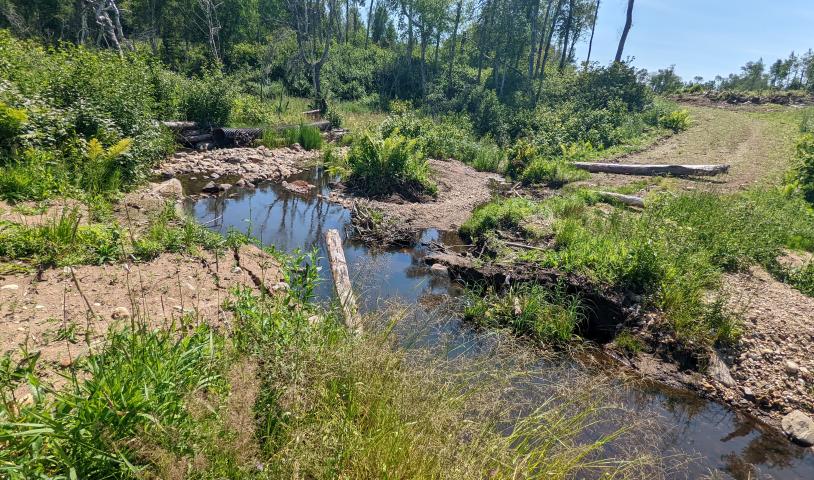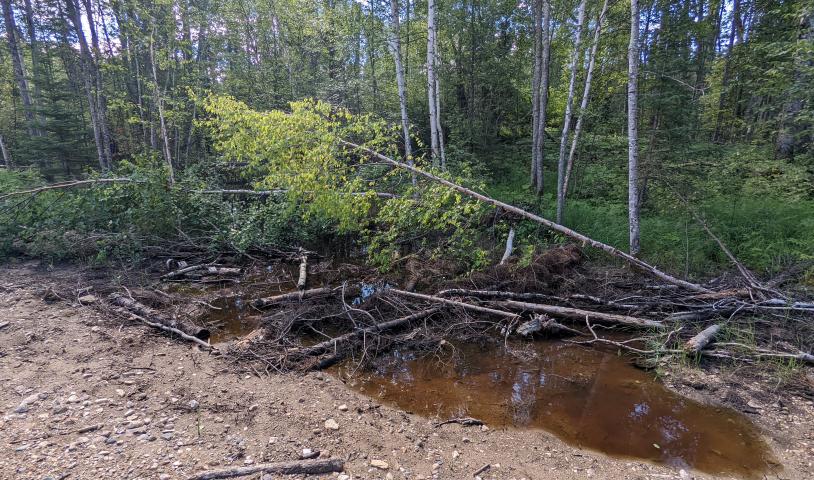New parks, more recycling part of Manitoba's green plan
Monday, June 18, 2012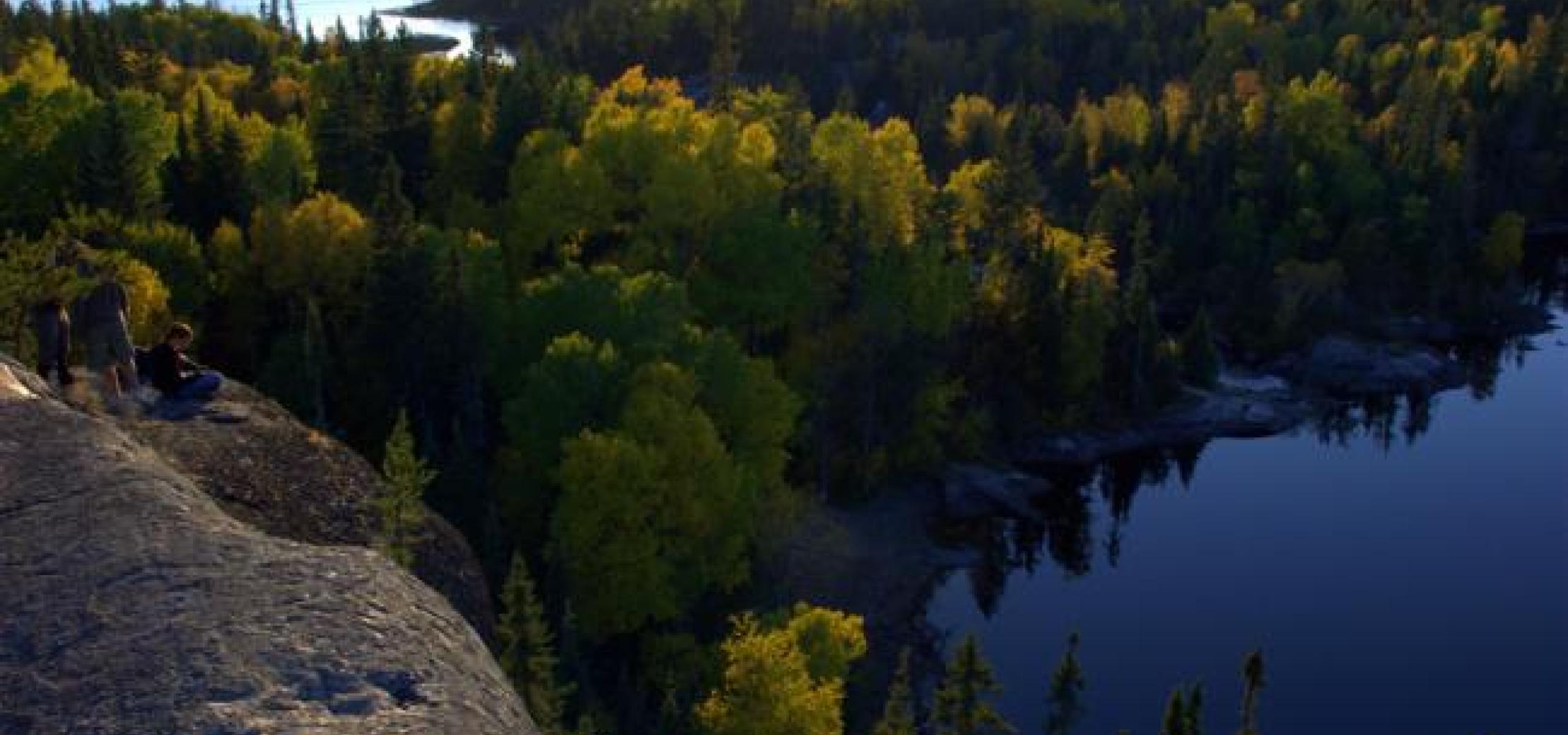
The Selinger government has set a lofty goal of making Manitoba one of the most sustainable places in the world to live.
And on Friday, at a news conference at The Forks, it unveiled a 54-page road map that will guide government actions on the environment over the next eight years.
The document, Tomorrow Now, Manitoba's Green Plan, is short on specifics, covering 100 initiatives, including adding up to 15 new provincial parks, ecological reserves and wildlife-management areas and committing to recycle 75 per cent of all drink containers in Manitoba by 2016.
"This is really a road map that's being announced. Not all the specific details are here but there are many good ideas that are here and over the next eight years... we'll start rolling out very specific ideas," Premier Greg Selinger said.
For the strategy to work, everyone has to do their part, the premier said. And, there's no reason to think protecting the environment and growing the economy are mutually exclusive, he added.
"When we build hydro (dams) without flooding that's a win for everybody," Selinger said. "When we recycle, we can generate good economic outcomes for the reused products and do the right thing for the environment."
Manitoba environmental groups generally approved of the blueprint that Conservation and Water Stewardship Minister Gord Mackintosh described as "Canada's most comprehensive green strategy."
"It's quite an ambitious document. They cover a lot of stuff in there. It's really good to see," said Eric Reder of the Wilderness Committee.
He was pleased with the commitment to add more land to Manitoba's protected areas. And he was glad to see a more formal commitment on some issues the province had only talked about, such as water protection and reviewing peat extraction from parks.
But he cringed at a heading of one section titled Green Mining in Manitoba.
"There's nothing more dirty and destructive than mining, anywhere," Reder said.
The Canadian Parks and Wilderness Society said it was pleased the province recognized the need for large tracts of land devoted to protecting woodland caribou. "Big intact habitats are what caribou and other species require for a healthy future," spokesman Ron Thiessen said.
Tory critic Larry Maguire noted a lot of the elements of the new green plan are recycled, such as the strategy to protect polar bears and the development in Winnipeg by New Flyer Industries of an electric-powered transit bus.
In more than three terms in office, the NDP has failed to meet self-imposed greenhouse-gas emission targets, and the province lags behind many others in recycling, Maguire said. "So obviously they've failed in what they've been doing in the past," he said.
Mackintosh said the document was forged with input from eight government departments.
Key goals
The province will:
- Add up to 15 new provincial parks, ecological reserves and wildlife-management areas over the next eight years.
- Generate 43 per cent more hydroelectric power (2,300 megawatts) in Manitoba within 15 years.
- Develop a new post-Kyoto climate-change strategy. (Manitoba failed to meet past self-imposed greenhouse-emission targets based on the Kyoto Protocol.)
- Introduce regulations requiring mandatory greenhouse-gas reporting after consulting with industry.
- Amend environmental assessments to make them more effective while ensuring developments are sustainable.
- Increase habitat protection for woodland caribou.
- Create a website showing the nearest location for dropping off hazardous materials and recyclables.
- Look for further ways of reducing retail plastic-bag use once the current target of a 50 per cent reduction by 2015 is met.
- Set a goal of recycling 75 per cent of all beverage containers by 2016.
- Work with Manitoba Hydro to explore the feasibility of phasing in widespread LED street lighting in the province.
- Achieve "substantial restoration" of the Delta and Netley-Libau marshes by 2020.
- Strengthen rules governing the drilling, construction, maintenance and sealing of water wells.
- Create new rules for all-terrain vehicles to ensure they are used safely and in an environmentally sustainable way.
Photo: Manitoba lakes
